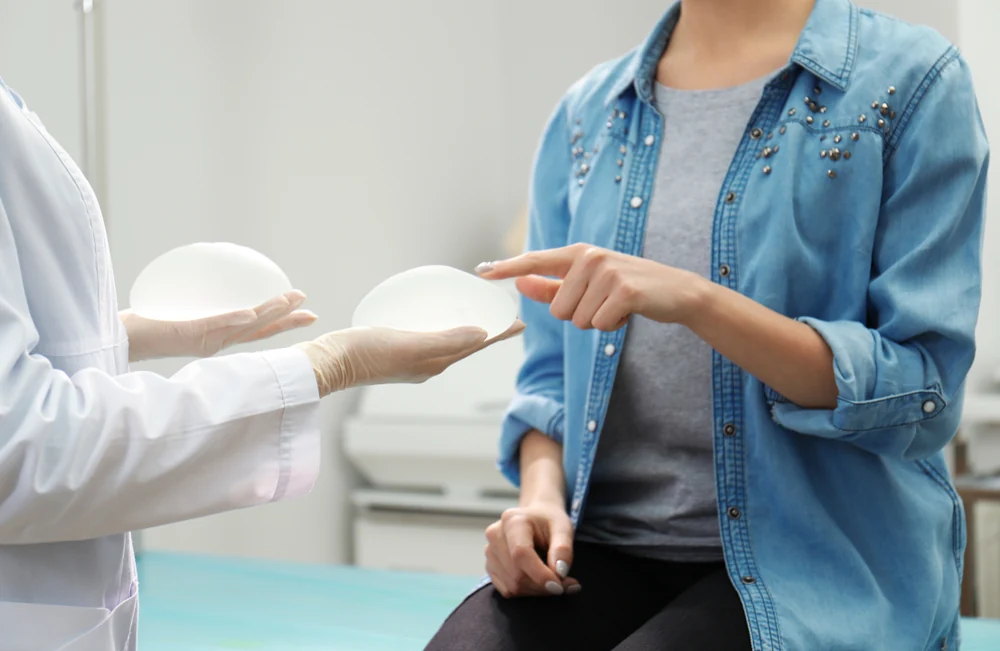
Whether you’ve had breast augmentation for cosmetic reasons or breast reconstruction following a mastectomy, the time will come when you need to consider replacing your breast implants. In this article, we’ll answer the five most common questions patients ask about breast implant replacement surgery. Our aim is to provide you with a clear understanding of the process and help you make informed decisions.
Why do breast implants need to be replaced?
One of the most frequently asked questions about breast implant replacement is why they need to be replaced in the first place. Breast implants are not meant to last a lifetime, and there are several reasons why replacement might be necessary:
- Implant Rupture: Implants can rupture, causing leakage of the saline solution or silicone gel. This is more common with older implants.
- Capsular Contracture: Over time, the natural capsule that forms around the implant can harden, leading to discomfort and distortion of the breast shape.
- Changes in Size or Shape Preferences: As our bodies change with age or life events, some individuals may want to change the size or shape of their implants.
- Cosmetic Concerns: Over the years, wear and tear can cause cosmetic changes in the implants, such as rippling, wrinkling, or visible edges.
- Health Concerns: In some cases, health issues, such as Breast Implant Illness, or personal preferences may necessitate implant removal or replacement.
How often should I replace my breast implants?
The frequency of breast implant replacement varies and largely depends on the type of implant, individual lifestyle, and other factors.
It is important for you to have your implants examined by a healthcare professional regularly to assess their condition. The FDA recommends screening implants for signs of rupture five years after they were placed, and every 2-3 years after that. This is done through a breast ultrasound or MRI.
There is no hard-and-fast rule regarding when and how often breast implants need to be replaced although most patients find that they need to do so around the ten-year mark.
Regular check-ups, self-examination, as well as open communication with your surgeon, can help you determine when it might be time to consider replacement.
Is Breast Implant Replacement the same as the initial surgery?
Breast implant replacement differs from the primary breast augmentation surgery. During the replacement, your surgeon will often use the same incisions from the first surgery to access the implants. This can help minimize scarring. The surgery may be more complex if there are issues like capsular contracture or if you’re changing the implant size or type.
Your surgeon will discuss the specifics of your replacement surgery during the consultation, and it’s essential to be honest about your goals and any concerns you may have. The recovery process may also vary, but it’s generally less painful and shorter than the initial augmentation surgery.
Can I change the size or type of implants during replacement?
Yes, many people choose to change the size or type of their breast implants. Lifestyle changes, aesthetic preferences, or a desire to improve the appearance of your breasts may all be reasons for wanting to alter your implants.
Keep in mind that changing the size or type of implants can have a significant impact on the outcome. Larger implants may require adjustments to the breast pocket, and a shift from saline to silicone or vice versa has its own considerations. Your surgeon will guide you through your options and ensure your decision aligns with your goals.
What are the risks associated with Breast Implant Replacement?
As with any surgical procedure, there are inherent risks associated with breast implant replacement. These can include infection, bleeding, scarring, and anesthesia-related complications. That said, these risks are generally quite low, and most people have successful implant replacement surgeries without complications.
Your surgeon will thoroughly explain these risks during your consultation and provide guidance on how to minimize them. Being in good overall health, following your surgeon’s pre- and post-operative instructions, and choosing an experienced and board-certified surgeon can greatly reduce the likelihood of complications.
If you’re considering breast implant replacement, our team of board-certified plastic surgeons will are here to help you navigate the process, ensuring you achieve the best possible outcome. To schedule a consultation, call Cassileth Plastic Surgery in Beverly Hills at 310-278-8200.
